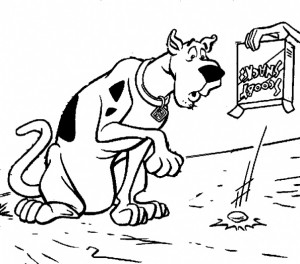 I’m not sure anyone who loves to eat as much as I do can properly call herself a health nut. I did, after all, write a wistful tribute to Dairy Queen Blizzards on this blog just a couple of weeks ago. And I do have a deep belief in free will and the necessity of people taking responsibility for their own actions. (When I got called for jury duty on a personal injury lawsuit, the corporate defense attorney found me delightfully amusing before the plaintiff’s lawyer dismissed me.) Those two facts combined mean that I often have mixed feelings in the junk food debate. Yes, I like Cheez-Its, but I don’t eat them every day, and that kind of restraint doesn’t feel all that difficult. So should we really be able to hold food companies responsible for the obesity epidemic?
I’m not sure anyone who loves to eat as much as I do can properly call herself a health nut. I did, after all, write a wistful tribute to Dairy Queen Blizzards on this blog just a couple of weeks ago. And I do have a deep belief in free will and the necessity of people taking responsibility for their own actions. (When I got called for jury duty on a personal injury lawsuit, the corporate defense attorney found me delightfully amusing before the plaintiff’s lawyer dismissed me.) Those two facts combined mean that I often have mixed feelings in the junk food debate. Yes, I like Cheez-Its, but I don’t eat them every day, and that kind of restraint doesn’t feel all that difficult. So should we really be able to hold food companies responsible for the obesity epidemic?
Well…actually, maybe we should, at least partly. A recent article in the New York Times magazine by Michael Moss makes a compelling case that the public doesn’t stand much of a chance against the unhealthy foods that the junk food kings are pushing. Really, you should just go read the actual article right now. But for the record, here are the tidbits that I found most interesting…and disturbing:
The Bliss Point
Any Malcolm Gladwell fans out there will already know about Howard Moskowitz, the guy who revolutionized the food market by testing in excruciating detail every possible permutation of a product (61 versions of Vanilla Cherry Dr. Pepper, say, to find the perfect balance of vanilla and cherry and, um, pepper-ness). He calls that balance the “bliss point,” and he finds it through surveying thousands of taste testers and crunching the numbers across dozens of factors. Which is all rather fascinating, but here’s the nagging thought I couldn’t get out of my head as I read about his process: can you think of anything that sounds less like cooking? When you cook, you take a bunch of good things you like and you combine them into something better, and though it can rely on either a recipe or intuition, the ingredients are still at the core. But in the current model, scientists find the bliss point first and worry about the ingredients later; they’ll throw in whatever they need to achieve that bliss point. It’s no wonder that if you engineer rather than cook your food, you’re sometimes going to end up with some weird results—a can of Prego containing as much sugar as an Oreo cookie binge, for instance. If any cook were presented with a home recipe that called for adding that much sugar to a spaghetti sauce, he would probably gag and throw it away.
If There Was A Problem, Yo, I’ll Solve It
I guess that first idea could be seen as food companies simply trying to give consumers what they want, but I found the story about Lunchables a little more nefarious than that. The guy who invented them knew that mothers were seriously pressed for time and decided that he would help solve their problem, while in the process giving their children early-onset diabetes. I have no children, but I have seen enough mothers of small kids to know that they often look tired and not at their best decision-making capacity. To target and exploit that exhaustion specifically in order to pack kids full of an entire day’s recommended allowance of saturated fat in one go…that seems sinister to me. As for the inventor of Lunchables, he has an adult daughter whose three children have never tasted their grandfather’s wonder product.
Heavy Users
But perhaps the most convincing bit of evidence was the idea that these companies are marketing specifically to the people whom they could harm most—that is, the people who are already eating too much of their food. A former Coke exec admitted that rather than trying to get new customers, “it’s more efficient to get my existing users to drink more.” This was a revelation to me, because I’ve often thought something along the lines of, “That commercial does not make me want to drink a Coke.” But of course it doesn’t; Coke doesn’t give a shit about selling to me. It’s too focused on how to up the amount purchased by the people who are already hooked. So it seems that unlike any alcohol company does (at least in a surface way), soft drink companies are hardly urging their “heavy users” to drink responsibly. They’re doing just the opposite.
Anyway, the article really is worth a read. I came away from it feeling a bit disgusted…and happy that our farm share of fresh veggies will kick in again in a couple of months.
